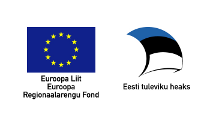Foreign nationals struggling more financially than their Estonian counterparts
Text Mark Taylor Photo Mikhail Nilov / Pexels
According to the results of a survey conducted Turu-uuringute AS, Estonian residents were more optimistic in February about their ability to cope financially than they were in the autumn. However, foreign nationals were more likely to be struggling financially than their Estonian counterparts.
The coronavirus pandemic, followed by exceptionally high rates of inflation (which at times were over 20 per cent last year), have caused a lot of worries and financial hardships for many in Estonia. However, according to a recent survey conducted by Turu-uuringute AS, these worries are beginning to subside.
This is because the number of people facing difficulties coping financially went down from 30 per cent last September to 24 per cent in February. There was also a similar trend for foreign nationals in Estonia, except for one caveat – the significantly higher rate of those struggling to cope financially. In February, 34 per of foreign nationals reported difficulties compared with 38 per cent in September last year.
Although the number of people struggling to cope has decreased, their thoughts regarding the future have worsened. In February, 55 per cent of respondents were uncertain of their finances moving forward compared to 71 per cent in September.
At the same time, Estonian residents’ sense of security has also fallen, with just 47 per cent considering the country to be a safe place to live. This is a fall of 8 per cent from the last survey in December. Perhaps surprisingly, foreign nationals felt safer than their Estonian counterparts, with 50 per cent reporting the feeling compared to just 46 per cent of Estonians.
“The dip in people’s sense of security in February is probably partly due to the messages that emerged during the parliamentary election campaign, which no doubt unnerved some people, and trust in the Riigikogu being eroded, but also partly due to expectations of a major Russian offensive in Ukraine,” said survey coordinator Vaike Vainu from Turu-uuringute AS.
More detailed information on the survey, which looked at many other aspects of life in the Estonia, can be found on the official Government Office website here.
The survey, which was commissioned by the Government Office, took place between February 16-21 and involved over 1500 respondents around Estonia.
To learn more about this and similar topicsEstonia Finance Foreign Nationals Future Inflation Security Survey Turu-uuringute AS










